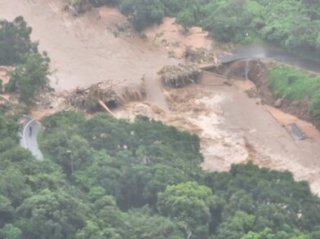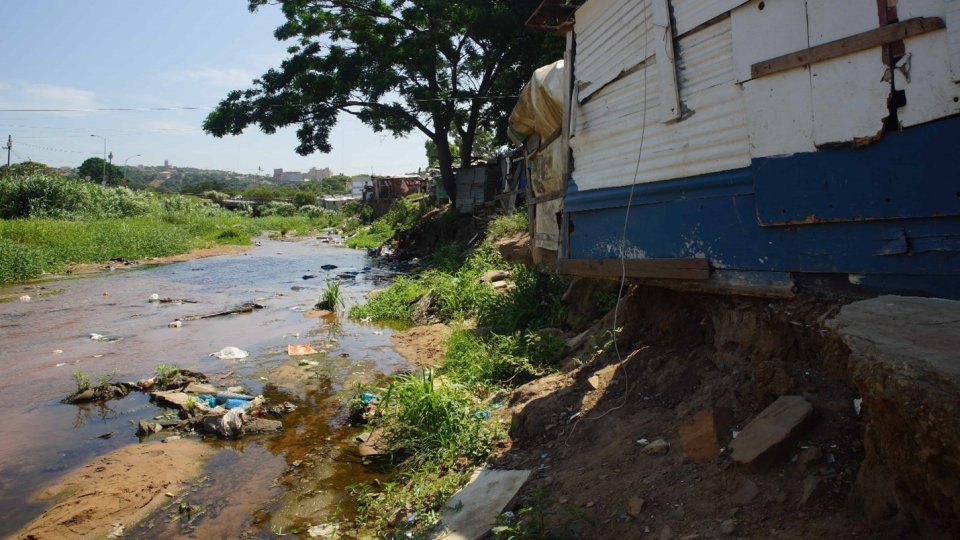Community-Based Flood Early Warning System in Durban, South Africa
How local collaboration led to the development and implementation of a community-based flood early warning system in an informal community
Why Climate Resilience Is Important to Durban

In April 2022, many parts of Durban, South Africa were devastated by torrential rains and flooding. In some areas nearly 10 inches of rain were recorded in a single night, displacing thousands of people, especially residents in the city’s 587 informal settlements that are not served by formal utility services such as water, sanitation, and electricity.
The flooding damaged over 19,000 dwellings and led to the loss of over 400 lives. To compound this disaster, animals, vegetation and large tracts of land were uprooted and displaced by the floods, threatening the region’s delicate biodiversity. Some of the displaced flora and fauna included dangerous reptiles and highly toxic plants that later impacted many of the survivors.
Damages caused by the floods included not only major financial losses to the city and its residents (over $1.4 billion US), but also brought intense emotional and physical trauma to its survivors.

Partnerships and Project Goals
Since 2017, the U.S. EPA’s Office of International Affairs has worked alongside a host of international partners to train university and local government officials in cities in Africa, Asia and Latin America using the Educational Partnerships for Innovation in Communities model. EPIC pairs local governments and communities with university students and faculty, to help tackle local issues such as climate adaptation, resilience, and sustainable development.
Starting in 2017, as part of an EPIC project, the City of Durban worked with the University of KwaZulu-Natal in Durban and its students to assist the city in developing and implementing a flood management plan and a community-based flood early warning system for the Quarry Road West community living along the Palmiet River. The early warning system uses weather forecast information from the weather service and shares that information with community members through electronic messaging and in-person communication.
Adaptation in Action
The community-based flood early warning system was in place and operational at the time of these 2022 rains and flooding. While there were significant losses and damage to property, animals, and homes, the Quarry Road West community suffered no loss of lives. As flooding is expected to intensify in the future, the installation of the flood early warning system will continue to protect lives in Durban.
